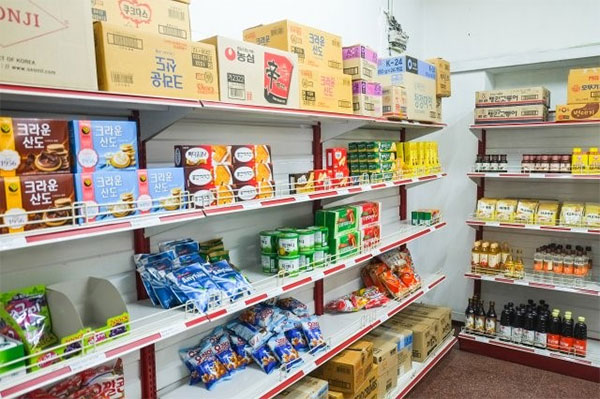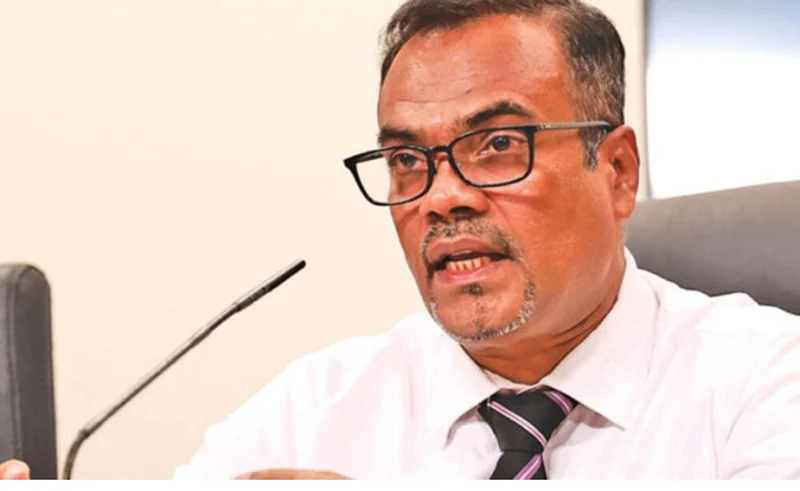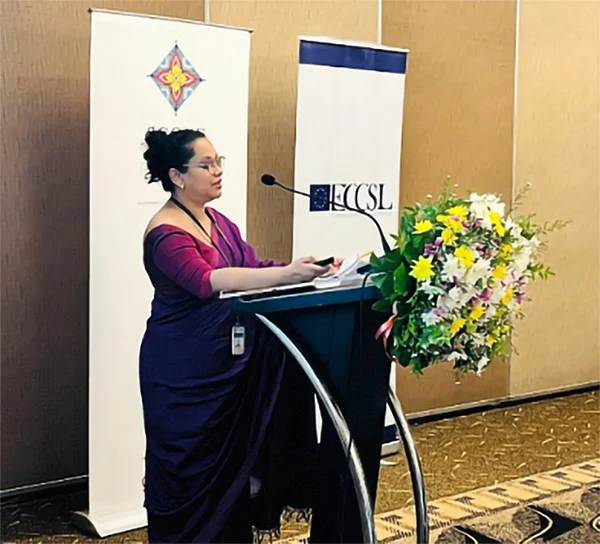Business
IPS Proposals for the Interim Budget

Ahead of the presentation of the Interim Budget, the Institute of Policy Studies of Sri Lanka (IPS) has recommended policy proposals for inclusion in the forthcoming Budget. Some key policy issues and recommendations follow.
Trade Policy
Despite strict import controls, Sri Lanka’s trade deficit in merchandise goods widened in 2021. The slight increase was mainly due to the sharp price movements in the world market, with the import reduction patterns across categories being consistent with the post-pandemic controls. As consumer goods imports are prioritised, including food imports, it generates two key undesirable impacts. First, it impacts food security and nutrition needs. Second, high food prices will incentivise a further resource shift – such as labour – to agriculture, raise wage costs for sectors like manufacturing and impact their competitiveness. In this context, two key recommendations are:
Prioritise imports for industrial expansion and food security needs: IPS research shows that about 88% of food imports are now subject to quantitative or price restrictions. The Special Commodity Levy (SCL) on items such as canned fish, green/black gram, cowpea, palm oil, and black gram flour should be removed to ensure that food security and caloric needs are met. Licensing restriction on maize imports which feeds poultry production costs must also be revisited. Sri Lanka must prioritise fertiliser imports and reintroduce fertiliser subsidies to paddy and vegetable farmers to raise productivity and prevent a resource shift that will impact overall economic efficiency.
Focus on increasing exports in sectors that use minimum foreign raw materials: There are certain products in which Sri Lanka enjoys a comparative advantage in global markets, requiring low imported raw materials in production such as tea, spices and mineral products like graphite. To meet immediate needs, bottlenecks such as fertiliser shortages should be addressed to raise productivity and export earnings whilst mineral resources can be auctioned to increase revenues.
Education Policy
The COVID-19 pandemic and the current economic crisis have severely affected the education sector. Health concerns, union action, social unrest and transport issues have resulted in frequent school closures. Inadequate budget allocations and improper recruitment of teachers have deteriorated the quality of education. Recent news items have highlighted difficulties faced by schools due to shortages of paper and other materials necessary for the functioning of schools. Further, deterioration of school facilities has affected the effective functioning of schools. Interruptions to school-based relief measures such as the school meal programmes can also increase school dropouts and malnutrition. Data from the Ministry of Finance reveals that public investment in education has remained just above 1%. Of this minuscule allocation, a large share is spent on teacher salaries. Frequent absorptions to the teaching cadre to provide jobs to unemployed graduates has worsened this situation crowding out funds from other necessary education inputs.
The government has recommended online lessons as a solution to difficulties in conducting on-site school classes. But IPS research shows that the access to online lessons is not equitable due to poor access to the internet, lack of necessary devices and high cost of data. In this context, two key recommendations are:
Increase public investment in education: Public investment in education should be increased and an adequate share of such investments should be dedicated to increasing the quality of education delivery such as the maintenance of school facilities, paper, and maintenance of school-centred relief programmes (e.g. school meals). This can be done by putting a cap on the share of government spending on salaries and wages of total expenditure in education. Given the lower enrolment rates for A-Levels, the government should consider introducing targeted financial assistance programmes for deserving children from poorer families to continue their studies.
Minimise school closures due to transport issues: Increase the existing fleet of school buses and provide adequate fuel for school buses to limit school closures due to transport issues. Measures should also be taken to ensure that children do not travel long distances to attend schools so that schools can function uninterrupted even in times of crisis.
Food Security and Nutrition Policy
IPS research shows that long-term environmental, social, and economic trends heightened by domestic and international challenges have eroded the resilience of Sri Lanka’s agri-food systems. On the global front, the COVID-19 pandemic and the Russia-Ukraine conflict are generating a global recession with high world market prices of food, oil, and fertiliser. At the local level, crop failures have resulted from poor government policies such as the chemical fertiliser import ban. Inflationary pressures arising from a combination of factors including excessive money printing and the sudden free float of the exchange rate have also taken a toll on domestic food prices and food supply. All these have resulted in low farm incomes, high food prices, food shortages and hunger and malnutrition. In this context, two key recommendations are:
Introduce a targeted food ration scheme for the poor and strengthen nutritional assistance: As an immediate measure to help the poor and marginalised who are the most vulnerable, introduce a targeted food ration scheme covering essentials like rice, wheat flour and dhal. Strengthen nutritional assistance programmes such as the School Meals programme, ‘Thriposha’ and ‘Poshana Malla’. Support from the World Food Programme (WFP), Food and Agriculture Organization (FAO) and regional (SAARC) and bilateral sources can be sought for this purpose.
Promote community gardens in the short term: Promote community gardens that include neighbourhood community gardens and school gardens. The way a community garden is set up and maintained can vary greatly from one to the other. These can be established in an empty land and the neighbours can look after it. It can be even in private land where the neighbours can share the harvest in exchange for labour. Some examples of community gardens include Virginia Avenue Community Garden, Washington, D.C., and Community Gardens Australia.
Health Policy
Sri Lanka’s health system is recognised as an efficient, low-cost model. However, changing demographic and disease patterns along with domestic finance issues threaten the sustainability of the health sector. Inadequate service provision in the public sector and shortages of medicine and equipment are driving people towards the private sector causing inequities in access to healthcare, as not all can afford private sector healthcare. Over half of the existing budget is allocated for wages leaving very little resources for all other health inputs. As a result, investments in this vital sector have been curtailed over the past few years. Further, changing lifestyles have exacerbated the risk factors for non-communicable diseases (NCDs). Four major behavioural risk factors directly contribute to the escalating NCDs in the country: tobacco use, physical inactivity, alcohol misuse, and unhealthy dietary patterns. In this context, two key recommendations are:
(To be continued)
Business
President AKD writes to President Trump over trade deficit concerns

In a bid to address mounting trade tensions, the Sri Lankan government has intensified efforts to reduce its significant trade deficit with the United States, Deputy Minister of Economic Development Dr. Anil Jayantha Fernando announced in parliament yesterday. He added that President Anura Kumara Dissanayake has despatched a formal letter to President Trump urging, among other things, a re-assessment of the recent enhanced tariff regime imposed on Sri Lanka.
The move follows reciprocal tariffs imposed by U.S. President Donald Trump, which Sri Lankan authorities say significantly affect key export sectors. The Deputy Minister indicated that the White House has acknowledged receipt of the Lankan President’s letter, signaling the launching of a potential bilateral dialogue.
Responding to a question raised by New Democratic Front (NDF) MP Ravi Karunanayake, Deputy Minister Fernando revealed that 88% of Sri Lanka’s trade deficit over the past five years stemmed from U.S. trade relations with apparel, rubber products, spices, other agricultural products and precious gems constituting 85% of total exports to the U.S. These exports, he noted, already face tariffs and paratariffs, but President Trump’s recent levies were calculated based on bilateral trade imbalances – a factor that has placed Sri Lanka’s economy under heightened pressure.
“The President’s intervention underscores our commitment to protecting Sri Lankan industries and fostering equitable trade terms, Fernando stated, defending the administration’s proactive and reactive measures to mitigate the US tariffs’ impact on local businesses.
Highlighting ongoing engagement, he added that another round of high-level discussions with the Office of the U.S. Trade Representative (USTR) was scheduled overnight. These talks aim to address structural trade imbalances and explore avenues for tariff relief, particularly for Sri Lanka’s apparel sector, which employs millions nationwide.
The President’s letter marks a strategic move in Sri Lanka’s diplomatic outreach, reflecting the government’s urgency to stabilise an economy still recovering from recent crises while in the middle of an IMF programme.
Sri Lankan industry leaders have cautiously welcomed the government’s efforts but emphasise the need for swift, tangible outcomes.
At present, all eyes remain on Washington’s response to President Dissanayake’s appeal – a potential turning point for Sri Lanka’s trade future, observers noted.
By Sanath Nanayakkare
Business
Inclusive and sustainable apparel for SDGs

The European Chamber of Commerce of Sri Lanka (ECCSL), in collaboration with the Strengthening Social Cohesion and Peace in Sri Lanka (SCOPE) programme, recently hosted its third industry-focused event, bringing together apparel-sector stakeholders to exchange experiences and practical insights on embedding inclusivity and sustainability into business operations.
Building on the success of ECCSL’s earlier events focused on tourism and food and agriculture, this apparel-focused gathering convened government representatives, industry leaders, business practitioners and the academia to discuss practical strategies for embedding inclusivity and sustainability into business operations.
While many businesses already recognize the importance of these principles, the event emphasized practical implementation, shifting the conversation from the “why” to the “how” of inclusive and sustainable practices.
Chamindry Saparamadu, Director General of the Sustainable Development Council of Sri Lanka, discussed how the Government of Sri Lanka is supporting businesses to create social and environmental impact through its Inclusive and Sustainable Business (ISB) Strategy. Ms. Saparamadu outlined how this strategy aims to create a resilient, equitable, and sustainable economy by building an ecosystem in which inclusive and sustainable businesses can thrive, driving transformative change across industries.
The event also featured engaging presentations from leading apparel businesses—Omega Line, Hirdaramani, and Compreli Consulting—each showcasing real-world examples of how inclusivity and sustainability can be embedded into business operations.
Omega Line, represented by Saman Jayasinghe (Chief HR Officer, Group – Administration) and Charman Dep (Assistant General Manager – Production Planning), presented its multifaceted sustainability approach, spotlighting its Vavuniya factory as a successful model for combining environmental stewardship with social impact.
Hirdaramani’s Manindri Bandaranayake (Chief Brand & Sustainability Officer for Sri Lanka, Bangladesh, Ethiopia, and Vietnam) showcased the company’s holistic sustainability framework, including its Wonders of Wellbeing (WOW) program, policies supporting differently-abled individuals, and deep community engagement.
Finally, Compreli Consulting co-founders Ramesh De Silva and Shehan Olegasageram showcased their innovative garment repair-as-a-service model—a circular, scalable solution that reduces waste and carbon emissions, while aligning with evolving global sustainability regulations.
Participants then had the opportunity to share their own knowledge in a group discussion, exchanging experiences and reflecting on the challenges and opportunities encountered in their sustainability journeys.
The event underscored the collective benefit of building Sri Lanka’s reputation as a global leader in inclusive and sustainable business. By fostering collaboration between businesses, the academic community and government stakeholders, the session aimed to accelerate broader industry adoption of these principles and contribute to Sri Lanka’s sustainable economic growth.
The discussions were facilitated by the Project Lead of ECCSL’s Inclusive Business Practices project, William Baxter.
Business
Union Assurance records Rs. 5.2 Billion PBT, fortifying its financial position by delivering best-in-class value

Union Assurance PLC, Sri Lanka’s longest-standing private Life Insurer, has recorded a strong financial performance with growth across key metrics for the year ending December 31, 2024. The Company achieved a 15% growth in gross written premium, totalling Rs. 21.6 billion driven by double-digit growth in both regular new business premiums and renewal premiums and paid Rs. 7.7 billion worth of claims and benefits to its customers during the year. In addition, for the year ending December 2024, the Company also declared an industry-leading universal life policyholder dividend rate of 12%, underscoring its continued commitment to deliver exceptional value to its customers.
Net investment income recorded a 9% year-on-year growth to reach Rs. 11.8 billion aided by an effective asset allocation strategy. The gains from the trading investment portfolio increased by 123% to reach Rs. 2.9 billion driven by the strong performance of the Colombo Stock Exchange during the latter part of the year.
Union Assurance distributed Rs. 3 billion as surplus from the policyholder fund and reported a profit after tax of Rs. 3.7 billion for 2024. The Company declared a final shareholder dividend of Rs. 5.00 per share amounting to a total payout of Rs. 2.9 billion.
A key milestone for Union Assurance in 2024 was the surpassing of Rs. 100 billion in total assets for the first time in its history, ending the year with Rs. 109.5 billion. This underscores the Company’s solid financial foundation and growth trajectory.
The Company’s assets under management grew by 15% during the year, reaching Rs. 95.6 billion driven by market valuation gains and cash generation from business operations. Furthermore, Union Assurance’s capital adequacy ratio stood at a healthy 264% at the end of 2024, well above the regulatory minimum of 120%.
-

 Business3 days ago
Business3 days agoColombo Coffee wins coveted management awards
-

 Business5 days ago
Business5 days agoDaraz Sri Lanka ushers in the New Year with 4.4 Avurudu Wasi Pro Max – Sri Lanka’s biggest online Avurudu sale
-

 Features4 days ago
Features4 days agoStarlink in the Global South
-

 Business6 days ago
Business6 days agoStrengthening SDG integration into provincial planning and development process
-

 Business5 days ago
Business5 days agoNew SL Sovereign Bonds win foreign investor confidence
-

 Sports7 days ago
Sports7 days agoTo play or not to play is Richmond’s decision
-

 Features4 days ago
Features4 days agoModi’s Sri Lanka Sojourn
-

 Midweek Review16 hours ago
Midweek Review16 hours agoInequality is killing the Middle Class











